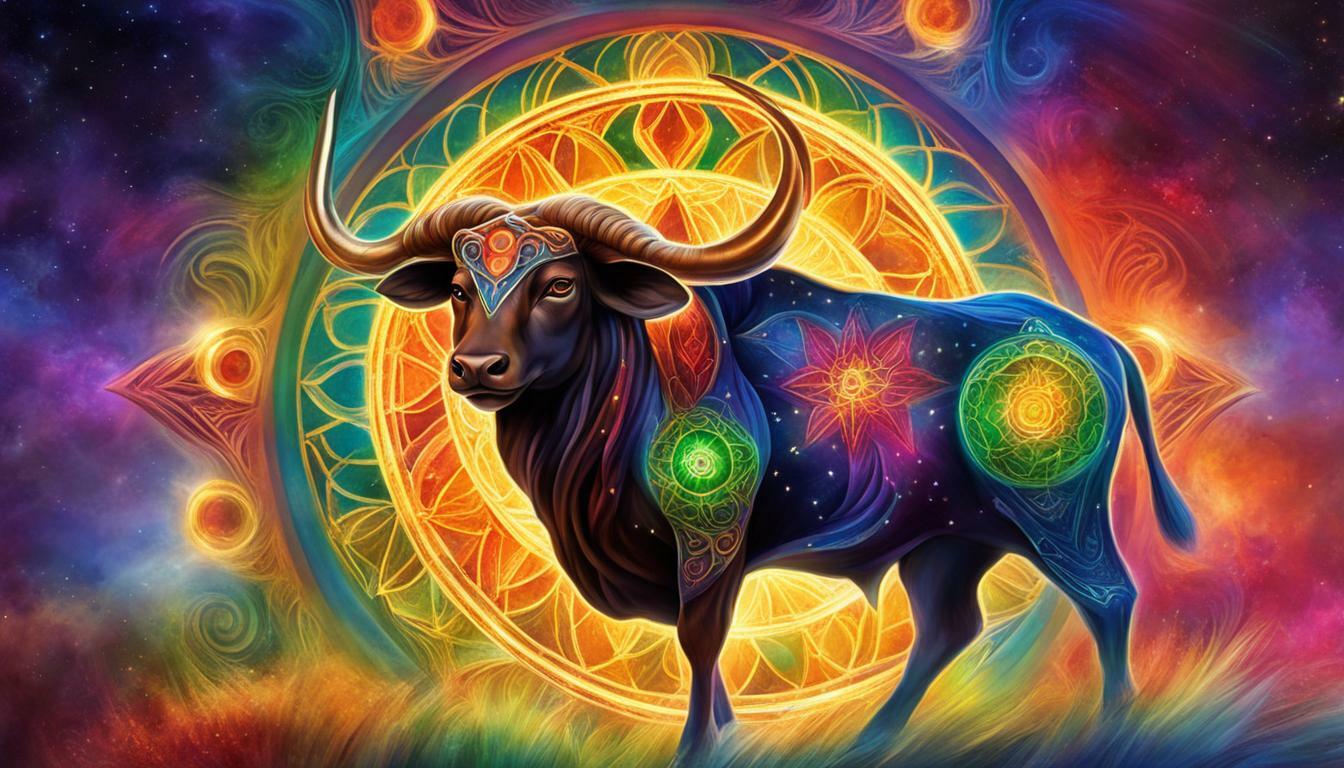Have you ever had a dream that seemed to predict a future event? Discover the meaning behind dreaming of something and it happening in real life. Precognitive dreams refer to the phenomenon of dreaming something that later happens in real life. These dreams are believed to be a form of precognition or the ability to foresee future events.
While some people dismiss these dreams as coincidences, studies suggest that everyone has some degree of psychic ability, and some individuals may have more heightened capabilities. Dreams have been a subject of fascination and interpretation for centuries, with historical accounts of prophetic dreams like those of Abraham Lincoln and biblical figures Jacob and Daniel.
Remembering and recording dreams can help decode their symbols and messages. While there is no definitive scientific explanation for precognitive dreams, theories suggest that they may involve psychic abilities, the ability to tap into the unconscious mind, or the activation of the third eye. It is important to differentiate between precognitive dreams and unconscious emotions or subconscious sorting-out dreams.
Signs that a dream may be precognitive include a vivid or lucid feeling, increased energy drain upon waking, symbols of transformation, and dreams occurring at significant dates or times. Keeping a dream journal and practicing meditation and grounding techniques can enhance dream recall and introspection. It is crucial to keep an open mind and trust the meaning of dream symbols.
Precognitive dreams are considered a form of psychic ability, which can manifest differently in individuals, such as clairvoyance (clear seeing), clairsentience (clear feeling), clairaudience (clear hearing), and more. Additionally, dreams can also serve as a form of telepathic communication. However, it is essential to differentiate precognitive dreams from intuitive dreams that may be influenced by existing knowledge or personal experiences.
While there is limited scientific evidence to support the existence of precognitive dreams, researchers acknowledge their prevalence and continue to explore possible explanations such as selective recall, tolerance for ambiguity, paranormal beliefs, and coincidences. Ultimately, the nature and cause of precognitive dreams remain largely unknown, but their study and interpretation continue to intrigue scientists and individuals alike.
Key Takeaways:
- Precognitive dreams are dreams that seem to predict future events.
- Everyone has some degree of psychic ability, and precognitive dreams may be a manifestation of this ability.
- Historical accounts and modern research have explored the phenomenon of precognitive dreams.
- Decoding dream symbols and messages can aid in understanding the meaning of precognitive dreams.
- Keeping a dream journal and practicing meditation can enhance dream recall and introspection.
- Precognitive dreams are considered a form of psychic ability, which can manifest in different ways.
- Differentiating between precognitive dreams and intuitive dreams is important to understand their nature.
The Phenomenon of Precognitive Dreams
Precognitive dreams, also known as dreams becoming reality, are a fascinating phenomenon that has captured the interest of dream analysts and individuals alike. These dreams refer to the ability to dream something that later happens in real life, suggesting a form of precognition or the ability to foresee future events. While some may dismiss these dreams as mere coincidences, studies suggest that there is a certain degree of psychic ability in everyone, and some individuals may have more heightened capabilities.
Dreams have long been a subject of fascination and interpretation, dating back centuries. Historical accounts of prophetic dreams, such as those of Abraham Lincoln or biblical figures like Jacob and Daniel, add to the intrigue surrounding dreams becoming reality. Remembering and recording dreams can be a helpful way to decode the symbols and messages they contain.
While there is no definitive scientific explanation for precognitive dreams, several theories have been proposed. These theories suggest that precognitive dreams may involve tapping into psychic abilities, accessing the unconscious mind, or activating the elusive third eye. It is important, however, to distinguish between precognitive dreams and other types of dreams, such as unconscious emotions or subconscious sorting-out dreams.
There are several signs that a dream may be precognitive. These include a vivid or lucid feeling during the dream, an increased energy drain upon waking, symbols of transformation, or dreams occurring at significant dates or times. To enhance dream recall and introspection, many find value in keeping a dream journal and practicing meditation and grounding techniques. Trusting the meaning of dream symbols and staying open-minded are also crucial when it comes to interpreting and understanding precognitive dreams.
Precognitive dreams are often regarded as a form of psychic ability. These abilities can manifest differently in individuals, such as clairvoyance (clear seeing), clairsentience (clear feeling), or clairaudience (clear hearing). Another fascinating aspect is the idea that dreams can serve as a form of telepathic communication. However, it is essential to differentiate between precognitive dreams and intuitive dreams, which may be influenced by existing knowledge or personal experiences.
While there is limited scientific evidence to fully support the existence of precognitive dreams, researchers acknowledge their prevalence and continue to explore possible explanations. These explanations may involve concepts such as selective recall, tolerance for ambiguity, paranormal beliefs, or even coincidences. The nature and cause of precognitive dreams remain largely unknown, but their study and interpretation continue to intrigue scientists and individuals alike.
| Precognitive Dreams | Dream Symbolism | Dreams Becoming Reality |
|---|---|---|
| Ability to foresee future events in dreams | Symbols and messages decoded through analysis | Dreams that manifest in real life |
| Historical accounts and famous examples | Interpretation techniques and methods | Validation and fascination with precognition |
| No definitive scientific explanation | Trust and openness to dream symbolism | Exploring the links between dreams and reality |
The History of Precognitive Dreams
Throughout history, there have been numerous accounts of symbolic dreams that later manifested in reality, showcasing the intriguing correlation between dreams and the waking world. These dreams, often filled with rich symbolism and hidden meaning, have captivated the human imagination for centuries.
In ancient times, dreams were believed to be divine messages, serving as a means of communication between humans and the spiritual realm. In the Bible, figures such as Jacob and Daniel experienced prophetic dreams that foretold significant events or offered guidance. These dreams played a pivotal role in shaping their lives and those around them.
One of the most famous examples of a precognitive dream comes from Abraham Lincoln, the 16th President of the United States. Just days before his assassination, Lincoln dreamt of his own death. In his dream, he saw himself lying in a casket surrounded by mourners. This haunting vision foreshadowed the tragic event that would unfold, leaving an indelible mark on history.
| Notable Figures with Precognitive Dreams | Significance |
|---|---|
| Abraham Lincoln | Foretold his own assassination |
| Jacob (Biblical figure) | Received divine messages through dreams |
| Daniel (Biblical figure) | Interpreted dreams with prophetic significance |
These historical accounts serve as a testament to the enduring fascination with the correlation between dreams and reality. They provide a glimpse into the enigmatic nature of precognitive dreams and the potential insights they offer into the mysteries of the human psyche.
Decoding Dream Symbols and Messages
Decoding the symbols and messages in your dreams is key to unraveling the meaning behind precognitive experiences. Dreams are often filled with rich symbolism, and understanding these symbols can provide valuable insights into your subconscious mind.
When analyzing your dreams, it’s important to keep in mind that symbols can have personal meanings that may vary from person to person. While some symbols may have universal interpretations, others may be unique to your own experiences and associations. To begin decoding your dream symbols, start by keeping a dream journal. Record your dreams as soon as you wake up to capture the details while they are still fresh in your mind. This will help you identify recurring symbols and patterns over time.
One technique for deciphering symbols is to make associations based on your own experiences and emotions. Consider what each symbol means to you personally and how it relates to your waking life. For example, if you dream of a snake, think about what snakes represent to you—fear, transformation, or healing, perhaps—and how that could relate to your current circumstances.
| Dream Symbol | Possible Interpretation |
|---|---|
| Water | Emotions, subconscious, purification |
| Flight | Freedom, escape, transcendence |
| Fire | Passion, transformation, destruction |
Remember that dream interpretation is subjective and can be a deeply personal process. Trust your intuition and go with what feels right to you. It may also be helpful to seek guidance from a professional dream analyst or join a dream interpretation group to gain different perspectives and insights. By honing your ability to decode dream symbols and messages, you can unlock the hidden meanings behind your precognitive dreams and further understand the connection between your dream world and waking reality.
The Science Behind Precognitive Dreams
While there is no definitive scientific explanation, researchers have put forth various theories to explain the phenomenon of precognitive dreams. Precognitive dreams, which involve dreaming of something that later happens in real life, have long fascinated scientists and individuals seeking to understand the mysteries of the human mind.
One theory suggests that precognitive dreams may involve psychic abilities, such as clairvoyance (clear seeing), clairsentience (clear feeling), or clairaudience (clear hearing). It is believed that some individuals may have heightened psychic capabilities, allowing them to tap into information beyond what is accessible to the conscious mind. These psychic abilities may provide glimpses of future events through dreams.
Another theory proposes that precognitive dreams are a result of tapping into the unconscious mind. Dreams are often considered a reflection of the unconscious, which contains thoughts, emotions, and experiences that are not readily accessible in waking life. It is believed that the unconscious mind may have a deeper understanding of events occurring outside of conscious awareness, allowing it to communicate future possibilities through dreams.
Some researchers also explore the concept of the third eye in relation to precognitive dreams. The third eye refers to an inner eye or intuition that goes beyond the physical senses. It is believed to be a source of heightened perception and insight. Activation of the third eye during dream states may provide individuals with glimpses of future events, allowing them to experience precognitive dreams.
| Theories | Explanation |
|---|---|
| Psychic Abilities | Some individuals may possess heightened psychic capabilities that enable them to tap into future events through dreams. |
| Unconscious Mind | Dreams may reflect the unconscious mind, which has a deeper understanding of events beyond conscious awareness. |
| Third Eye Activation | The activation of the third eye during dream states may provide individuals with insights into future events. |
While the scientific community acknowledges the prevalence of precognitive dreams, there is still limited empirical evidence to support their existence. Some explanations put forth by scientists include selective recall, which suggests that individuals may only remember the dreams that align with events that occur in reality. Tolerance for ambiguity is another theory, proposing that individuals may attribute meaning to dreams after the fact, finding connections between the dream content and real-life events. Additionally, the role of coincidences cannot be dismissed, as chance occurrences may create the illusion of precognition.
In conclusion, precognitive dreams remain a fascinating and enigmatic phenomenon. While their scientific explanation may elude us, exploring theories related to psychic abilities, the unconscious mind, and the third eye offers potential insights into the nature of these dreams. As researchers continue their investigations, the study and interpretation of precognitive dreams will undoubtedly contribute to our understanding of the human mind and its remarkable capabilities.
Differentiating Between Types of Dreams
It is important to distinguish between different types of dreams to determine if a dream has the potential to be precognitive. While all dreams can hold personal meaning and offer insights into our subconscious, precognitive dreams specifically involve glimpses into future events. These dreams are characterized by their ability to accurately predict occurrences before they happen, leaving individuals in awe of their intuitive capabilities.
One way to differentiate between precognitive dreams and other types of dreams is to pay attention to the emotions associated with the dream. Precognitive dreams often evoke a sense of clarity and purpose, as if the dreamer is experiencing the event firsthand. In contrast, dreams that reflect unconscious emotions are usually connected to unresolved feelings or experiences from the past. These dreams serve as a way for our minds to process emotions and make sense of our personal history.
Another key distinction lies in the content and symbolism of the dream. Precognitive dreams tend to include specific details and symbols that directly relate to future events. These symbols may represent transformations, significant dates or times, or even recognizable settings. On the other hand, dreams that fall under the category of subconscious sorting-out dreams involve more random and fragmented images, often reflecting our daily experiences and thoughts.
To further understand the nature of a dream, it can be helpful to keep a dream journal and record any details or impressions upon waking. This practice not only aids in dream recall but also allows for pattern recognition and the identification of recurrent themes. By observing and reflecting on the patterns present in your dreams, you can gain a deeper understanding of their purpose and potential precognitive nature.
| Types of Dreams | Description |
|---|---|
| Precognitive Dreams | These dreams provide glimpses into future events and contain specific details and symbols related to those events. |
| Unconscious Emotions | Dreams that reflect unresolved feelings and experiences from the past, helping our minds process emotions and personal history. |
| Subconscious Sorting-Out Dreams | Dreams that involve random and fragmented images, reflecting daily experiences and thoughts. |
In conclusion, being able to differentiate between different types of dreams is crucial in determining if a dream has the potential to be precognitive. Precognitive dreams offer the unique ability to provide insights into future events, often accompanied by vivid emotions and specific symbols. By keeping a dream journal and analyzing dream patterns, individuals can gain a deeper understanding of their dreams and potentially unlock their own precognitive abilities.
Enhancing Dream Recall and Introspection
Keeping a dream journal and practicing meditation and grounding techniques can greatly enhance your ability to recall and gain insights from your dreams. Dream recall is crucial in deciphering the symbols and messages that your dreams may hold. By keeping a dream journal, you create a dedicated space to record your dreams immediately upon waking. This simple act helps solidify memories of your dreams, making them easier to recall and analyze later on.
In your dream journal, take note of any vivid or recurring symbols, colors, or emotions that stand out to you. These can be valuable clues to understanding the meaning behind your dreams. Additionally, try to jot down any significant events, dates, or times that coincide with your dreams, as these may hold deeper significance.
| Techniques for Enhancing Dream Recall | Benefits |
|---|---|
| Keeping a dream journal | Helps solidify dream memories and aids in analysis |
| Setting intentions before sleep | Increases focus on dreams and boosts dream recall |
| Creating a peaceful sleep environment | Promotes restful sleep and clearer dream recall |
Meditation and grounding techniques can also be powerful tools in enhancing your connection with your dreams. By practicing meditation before sleep, you can calm your mind and open yourself up to receiving intuitive messages through your dreams. Grounding techniques, such as deep breathing exercises or visualization, can help you become more present in the moment and increase your awareness of your dreams.
Remember, the interpretation of your dreams is a deeply personal and subjective process. Trust your intuition and inner wisdom as you navigate the rich and mysterious landscape of your dreams. By honing your dream recall and introspection skills, you can unlock hidden insights and harness the power of your dreams to guide you on your journey.
Key Takeaways:
- Keeping a dream journal and jotting down your dreams upon waking can enhance your dream recall and analysis.
- Pay attention to vivid symbols, recurring themes, and significant events that coincide with your dreams.
- Meditation and grounding techniques can help calm your mind and increase your awareness of your dreams.
- Trust your intuition and inner wisdom when interpreting the symbols and messages within your dreams.
Trusting Dream Symbols and Intuition
Trusting the meaning of dream symbols and listening to your intuition are crucial aspects of understanding precognitive dreams. Dreams are filled with symbolism that can provide insights into our subconscious mind and offer glimpses into future events. By paying attention to the symbols that appear in your dreams and trusting your intuition, you can gain a deeper understanding of the messages and meanings behind these dreams.
In order to decode dream symbols, it is important to keep an open mind and allow your subconscious mind to guide you. Symbolism in dreams can be highly personal, and what may have a specific meaning for one person may have a completely different meaning for another. By trusting your own interpretation of dream symbols and listening to your intuition, you can uncover the hidden messages and guidance that your dreams are trying to convey.
In addition to trusting dream symbols, it is also important to be aware of your own intuition when it comes to interpreting precognitive dreams. Intuition is a powerful tool that can provide valuable insights and guidance. When analyzing your dreams, pay attention to any gut feelings or intuitive hunches that arise. These intuitive impressions can often provide valuable clues about the meaning and significance of your dreams.
By combining your trust in dream symbols with your intuition, you can unlock the deeper meanings and insights hidden within your precognitive dreams. Remember to keep an open mind, trust your own interpretation, and embrace the fascinating journey of exploring the enigmatic world of dreams.
| Dream Symbol | Meaning |
|---|---|
| Water | Emotional state, purification, cleansing |
| Fire | Transformation, passion, creativity |
| Animals | Instincts, primal desires, hidden aspects of self |
“Dreams are the royal road to the unconscious.” – Sigmund Freud
- Keep a dream journal to record your dreams and their symbols
- Practice meditation to quiet the mind and enhance dream recall
- Use grounding techniques, such as deep breathing or grounding exercises, to anchor yourself in the present moment and increase awareness
Summing up
Trusting dream symbols and intuition is crucial when it comes to interpreting precognitive dreams. By understanding the symbolism within your dreams and listening to your intuitive impressions, you can gain valuable insights into your subconscious mind and potential future events. Keep an open mind, trust your own interpretation, and embrace the fascinating journey of exploring the enigmatic world of dreams.
| Types of Precognitive Dreams | Description |
|---|---|
| Direct Precognitive Dreams | These dreams provide clear and specific information about future events. |
| Symbolic Precognitive Dreams | These dreams use symbols and metaphors to convey messages about future events. |
| Emotional Precognitive Dreams | These dreams evoke strong emotions that are later connected to real-life events. |
Exploring Psychic Abilities
Precognitive dreams are considered a form of psychic ability, which can manifest in various ways, allowing individuals to perceive future events. These abilities, often referred to as clairvoyance, clairsentience, and clairaudience, are believed to tap into the intuitive and extrasensory powers of the mind.
Clairvoyance, or clear seeing, is the ability to gain visual insights or visions beyond what is perceptible to the physical senses. This psychic ability enables individuals to receive visual images, symbols, or scenes that hold significance and may represent future events. It is like having an inner eye that can peer beyond the present moment.
On the other hand, clairsentience, or clear feeling, allows individuals to receive intuitive impressions or emotions that provide insight into future events. This empathic ability enables people to sense the energy or emotions associated with certain situations or individuals, guiding them towards making informed choices or understanding forthcoming circumstances.
Furthermore, clairaudience, or clear hearing, enables individuals to receive auditory messages or information beyond the realm of physical hearing. This psychic ability allows them to receive guidance, warnings, or insights through inner voices, sounds, or words that can help navigate future events.
| Psychic Ability | Definition |
|---|---|
| Clairvoyance | The ability to gain visual insights or visions beyond physical perception |
| Clairsentience | The ability to receive intuitive impressions or emotions that provide insight into future events |
| Clairaudience | The ability to receive auditory messages or information beyond physical hearing |
These psychic abilities are not limited to precognitive dreams. They can manifest in various forms, such as intuitive hunches, gut feelings, or flashes of insight during waking moments. Exploring and developing these abilities can enhance one’s connection to their intuition and provide invaluable guidance in navigating life’s uncertainties.
It is important to note that while psychic abilities and precognitive dreams are intriguing concepts, scientific evidence supporting their existence remains limited. Researchers often explore potential explanations, including selective recall, tolerance for ambiguity, and coincidences. The enigmatic nature of precognitive dreams continues to fascinate scientists and individuals alike, inspiring ongoing research and exploration into the mysteries of the human mind.
Dreams as Telepathic Communication
Dreams have the potential to go beyond personal experiences and connect individuals through telepathic communication. They serve as a mysterious gateway to a realm where thoughts, emotions, and messages can transcend physical boundaries. Through dream symbolism, vivid imagery, and intuitive connections, dreams can bridge the gap between minds, allowing for a unique form of communication.
Within the dream state, individuals may have shared experiences that seem to align with the thoughts or emotions of others. This phenomenon suggests that dreams can act as a conduit for telepathic communication, where information is exchanged through an unseen connection. It is as if the dream world taps into a collective consciousness that connects individuals on a deeper level.
When exploring the concept of telepathic communication in dreams, it is essential to consider the symbolism that often accompanies these experiences. Dreams may present meaningful symbols, archetypes, or metaphors that resonate with multiple individuals. These shared symbols can serve as a language through which telepathic messages are conveyed.
| Symbol | Meaning |
|---|---|
| Butterfly | Transformation and growth |
| Bridge | Connection or transition |
| Water | Emotions and the subconscious mind |
Quotes from individuals who have experienced telepathic communication in dreams further shed light on the potential power and significance of these experiences:
“I had a dream where my friend and I were sitting together, and without speaking, we both understood what the other was thinking. It was like we were communicating through our minds.” – Jane, Los Angeles
“I once dreamt of my grandmother, who had passed away years ago. In the dream, she smiled at me and told me everything was going to be okay. I woke up with a sense of peace and comfort, as if her message had reached me.” – John, New York
Exploring the Meaning Behind Dream Symbols
To fully grasp the telepathic messages within dreams, it is crucial to decode the meaning behind dream symbols. Symbolism in dreams often operates on a universal level, tapping into shared archetypes and concepts. By analyzing and interpreting dream symbols, individuals can gain deeper insights into the messages they receive and the connections they make.
- Keep a dream journal: Recording dreams and the associated symbols can aid in identifying patterns and recurring themes.
- Meditation and grounding techniques: Practicing mindfulness and connecting with the present moment can enhance receptivity to telepathic messages in dreams.
- Trust your intuition: Intuition can be a valuable tool in understanding the meaning behind dream symbols. Pay attention to your inner knowing and the feelings that arise when exploring dream symbolism.
While the true nature of telepathic communication in dreams remains a subject of ongoing exploration and fascination, the power of these experiences cannot be denied. Through dream symbolism and intuitive connections, dreams have the potential to connect individuals on a profound level, opening doors to a realm where thoughts and emotions can transcend physical boundaries.
Scientific Perspectives on Precognitive Dreams
While scientific evidence is limited, researchers continue to explore possible explanations for precognitive dreams. The enigmatic nature of these dreams leaves scientists with more questions than answers, but their prevalence and intriguing aspects cannot be dismissed. One theory, called selective recall, suggests that individuals may only remember dreams that align with future events, leading to a perception of precognition.
Another theory proposes that tolerance for ambiguity plays a role in the interpretation of dreams. Dreams are filled with symbols and images that may have multiple meanings, and individuals who are more comfortable with ambiguity may be more likely to attribute a dream to a future event. This theory suggests that the interpretation of a dream as precognitive may be influenced by an individual’s personality traits or beliefs.
Paranormal beliefs also come into play when considering the scientific perspective on precognitive dreams. Some researchers argue that individuals with a higher inclination towards paranormal beliefs may be more likely to interpret dreams as precognitive, as they already have a predisposition towards accepting the existence of psychic phenomena.
Lastly, the occurrence of coincidences can also contribute to the perception of precognitive dreams. Humans are naturally inclined to seek patterns and connections in their experiences, and when a dream aligns with a real-life event, it can be seen as evidence of precognition. However, it is important to carefully examine the statistical probability of such coincidences before jumping to conclusions.
| Scientific Perspectives on Precognitive Dreams |
|---|
| Selective Recall |
| Tolerance for Ambiguity |
| Paranormal Beliefs |
| Coincidences |
While these scientific perspectives provide some insights into the phenomenon of precognitive dreams, it is crucial to note that the study of dreams, especially those with a predictive nature, is still in its early stages. The human mind remains a complex and mysterious entity, and dreams continue to be a subject of fascination and interpretation across cultures and throughout history.
The Enigmatic Nature of Precognitive Dreams
The study and interpretation of precognitive dreams remain a fascinating and ongoing area of scientific research, capturing the curiosity and wonder of individuals around the world. Precognitive dreams refer to the phenomenon of dreaming something that later happens in real life, suggesting a form of precognition or the ability to foresee future events. While some may dismiss these dreams as mere coincidences, studies suggest that everyone possesses some degree of psychic ability, with certain individuals exhibiting heightened capabilities.
Dreams have long been a subject of fascination and interpretation, with historical accounts of prophetic dreams dating back centuries. Figures like Abraham Lincoln and biblical characters Jacob and Daniel are known for their recorded precognitive dreams. Analyzing and decoding the symbols and messages within dreams can provide insight into their meaning and potential connection to real-life events.
While there is no definitive scientific explanation for precognitive dreams, theories propose that they may involve psychic abilities, tapping into the unconscious mind, or activating the third eye. Differentiating between precognitive dreams and other types of dreams, such as unconscious emotions or subconscious sorting-out dreams, is essential in understanding their significance. Signs that a dream may be precognitive include vivid or lucid experiences, increased energy drain upon waking, symbols of transformation, and dreams occurring at significant dates or times.
Enhancing dream recall and introspection can aid in unraveling the mysteries of precognitive dreams. Keeping a dream journal, practicing meditation, and utilizing grounding techniques are effective ways to improve dream recall and gain deeper insight into their meanings. Trusting the symbolism and intuition present in dreams is vital to interpreting precognitive dreams accurately. It is also worth noting that precognitive dreams are considered a form of psychic ability, which can manifest in various ways, including clairvoyance (clear seeing), clairsentience (clear feeling), and clairaudience (clear hearing).
Dreams can also be seen as a potential means of telepathic communication, allowing individuals to connect and share information on a subconscious level. However, it is crucial to differentiate between precognitive dreams and intuitive dreams, which may be influenced by existing knowledge or personal experiences.
While limited scientific evidence exists to support the existence of precognitive dreams, researchers acknowledge their prevalence and continue to explore potential explanations. Theories such as selective recall, tolerance for ambiguity, paranormal beliefs, and coincidences have been proposed to shed light on the enigmatic nature of precognitive dreams. Despite the ongoing mysteries surrounding their nature and cause, the study and interpretation of precognitive dreams continue to captivate scientists and individuals who are eager to unravel the secrets of the subconscious mind.
Is Dreaming of Being Late Related to Predictive Dreaming?
Is dreaming about being late related to predictive dreaming? While some individuals believe that these types of dreams could be a subconscious way of predicting future events, there is no scientific evidence to support this claim. Dreaming about being late is more likely related to feelings of anxiety, stress, or fear of missing out on opportunities. Understanding the context of the dream and exploring one’s emotions can provide insights into its meaning.
FAQ
What are precognitive dreams?
Precognitive dreams refer to the phenomenon of dreaming something that later happens in real life. They are believed to be a form of precognition or the ability to foresee future events.
Are precognitive dreams just coincidences?
While some people dismiss precognitive dreams as coincidences, studies suggest that everyone has some degree of psychic ability, and some individuals may have heightened capabilities.
How can I interpret my dreams?
Remembering and recording dreams can help decode their symbols and messages. Keeping a dream journal and practicing meditation and grounding techniques can enhance dream recall and introspection.
How can I differentiate precognitive dreams from other types of dreams?
Signs that a dream may be precognitive include a vivid or lucid feeling, increased energy drain upon waking, symbols of transformation, and dreams occurring at significant dates or times.
What are some examples of precognitive dreams?
Precognitive dreams have been reported throughout history, with notable examples including Abraham Lincoln’s dream of his own assassination and biblical figures like Jacob and Daniel having prophetic dreams.
Are precognitive dreams a form of psychic ability?
Yes, precognitive dreams are considered a form of psychic ability. They can manifest differently in individuals, such as clairvoyance (clear seeing), clairsentience (clear feeling), clairaudience (clear hearing), and more.
Is there scientific evidence for precognitive dreams?
While there is limited scientific evidence to support the existence of precognitive dreams, researchers acknowledge their prevalence and continue to explore possible explanations such as selective recall, tolerance for ambiguity, paranormal beliefs, and coincidences.
What is the nature of precognitive dreams?
The nature and cause of precognitive dreams remain largely unknown. However, their study and interpretation continue to intrigue scientists and individuals alike.








